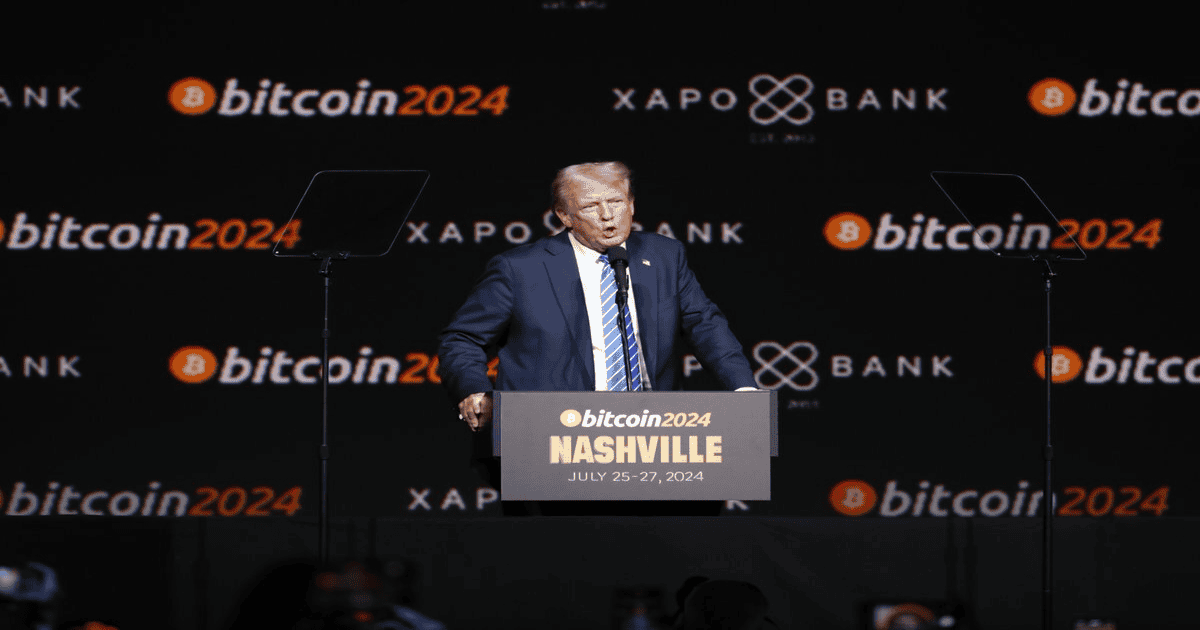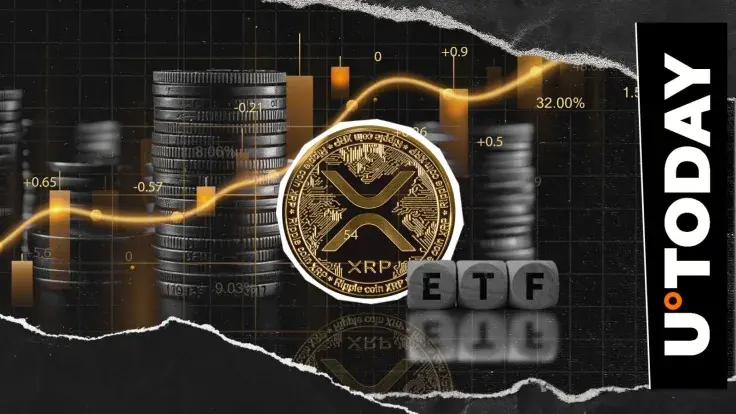US Government Makes History, Publishes GDP Data on Bitcoin Blockchain

The U.S. government has officially commenced publishing gross domestic product (GDP) data on public blockchains, a move reported by Bloomberg. This announcement from the Commerce Department on Thursday signifies the integration of blockchain technology into the core of America’s economic reporting, making GDP information available on nine networks, including prominent ones like Bitcoin, Ethereum, and Solana. This groundbreaking development was highlighted by Bitcoin Magazine, emphasizing its immediate impact.
Commerce officials have clarified that this blockchain initiative serves as “another avenue” for data distribution rather than a replacement for traditional economic data releases. Nevertheless, the action carries substantial symbolic weight, as it effectively bestows government approval upon a technology that has historically been met with considerable skepticism in Washington. Mike Cahill, CEO of Douro Labs, who has been collaborating with the Commerce Department on this initiative for two months, stated, “With today’s announcement we are now in a world where government data lives on blockchains, and market participants can participate in real time.”
The initiative involves posting cryptographic hashes of GDP data, which act as digital fingerprints to verify the integrity and authenticity of the information. While initially limited in scope, Commerce Department officials confirmed President Donald Trump’s administration intends to significantly expand the program. The project was spearheaded by Commerce Secretary Howard Lutnick, who informed Trump earlier this week that statistics would be issued via blockchain because, in his words, “you are the crypto president.” Lutnick has previously suggested a revised approach to GDP reporting that would exclude the impact of government spending.
This policy represents a sharp contrast to the previous administration. Under former President Joe Biden, regulators adopted a cautious approach to cryptocurrency, often clashing with exchanges and imposing restrictions on digital assets. In stark opposition, Trump has rapidly moved to integrate Bitcoin into government policy since taking office. His administration has established a U.S. Bitcoin reserve, stockpiled various digital coins such as Ether and Solana, signed legislation regulating stablecoins, and appointed crypto-friendly regulators who subsequently ended enforcement actions against companies like Coinbase. Furthermore, Trump’s family has deepened its presence in the digital asset space, backing ventures such as World Liberty Financial.
The burgeoning political clout of the crypto industry is evident, with crypto firms donating heavily to Trump’s reelection campaign and contributing over $133 million to super PACs supporting pro-crypto candidates in 2024, as reported by OpenSecrets. By leveraging public blockchains, the Commerce Department joins other agencies that are also experimenting with crypto technology. The Department of Homeland Security has considered blockchain for airport passenger screening, while California’s DMV has digitized car titles on crypto. As President Trump positions himself as the “crypto president,” the adoption of blockchain for GDP distribution signals a profound transformation in U.S. economic policy and further solidifies Bitcoin’s role as a powerful political and financial force in Washington.
You may also like...
Weigh-In Chaos Erupts as Crawford vs Canelo Super-Fight Explodes!

Boxing fans are eagerly anticipating the super-middleweight clash between Saul 'Canelo' Alvarez and Terence Crawford in ...
Arsenal Dominates Forest 3-0 in Postecoglou's Nightmare Debut, Odegaard Injured!

Arsenal climbed to the top of the Premier League with a convincing 3-0 victory over Nottingham Forest, spearheaded by Ma...
Latin Music Sensation Trueno Joins Forces with Gorillaz on Epic Tour

This week in Latin music saw several artists making headlines, from Peso Pluma's historic role as CFDA's first Mexican a...
Property Peril: Sarah Beeny's Desperate Battle for 'Downton Abbey' Dream Home

TV presenter Sarah Beeny awaits a crucial update on the demolition order for her £3million Somerset home. Built without ...
Royal Rift Widens: Prince Harry's Bold Stand After Surprise Warzone Visit

Prince Harry recently completed a four-day visit to Britain, fulfilling charitable duties and meeting privately with Kin...
Culinary Calamity: Hilda Baci's Record Pot Shatters at Weigh-in

Nigerian chef Hilda Baci's attempt to set a new Guinness World Record for the largest pot of jollof rice faced a dramati...
Shockwave: Akon's 29-Year Marriage Ends in Divorce

Global music star Akon faces a divorce filing from his wife, Tomeka Thiam, after nearly three decades of marriage. Thiam...
Supermom Sue Radford Stuns With Two-Stone Weight Loss After Epic Florida Family Adventures

Sue Radford, mum of Britain's biggest family, has proudly revealed her two-stone weight loss, embracing a healthier and ...




